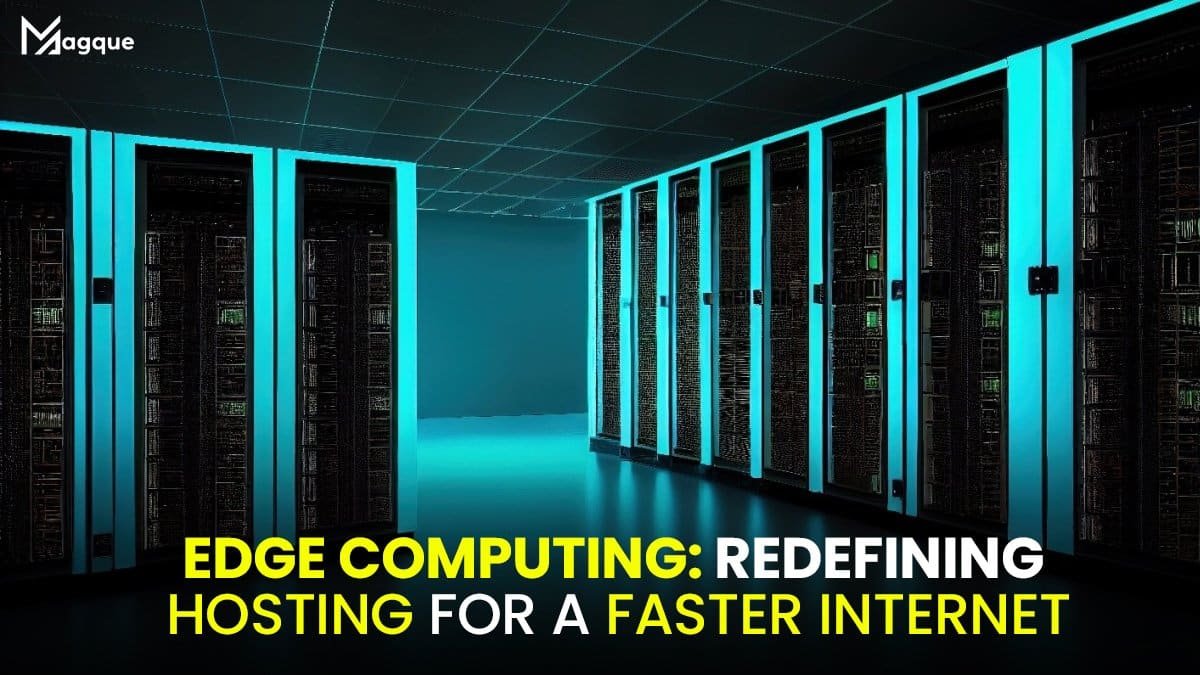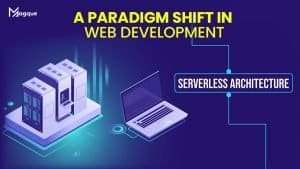Speed is of the essence in a world where our lives revolve around the internet. We instantly want information at our fingertips, whether streaming our favourite shows, conducting business, or connecting with loved ones. This insatiable demand for speed has given rise to a transformative technology known as Edge Computing, and it’s poised to redefine hosting for a faster internet experience.
What is Edge Computing?
Before we dive into how Edge Computing is reshaping the hosting landscape, let’s understand what it is. Edge Computing is a distributed computing paradigm that brings data processing closer to the source of data generation, typically at the “edge” of the network, rather than relying solely on centralized data centres. This means the processing happens much closer to your device, significantly reducing Latency and improving response times.
Imagine your internet connection as a highway. Traditional hosting methods are like having a massive data warehouse in a distant city. When you request information, it’s like sending a truck to that warehouse to retrieve what you need, which takes time. On the other hand, Edge Computing places mini-warehouses (edge servers) strategically along the highway, ensuring that the data you need is readily available nearby. This analogy illustrates how Edge Computing revolutionizes the way we access information online.
Speeding Up the Internet
Now that we’ve got the basics covered let’s explore how Edge Computing is redefining hosting for a faster internet:
1 Reduced Latency
Latency is the delay between sending a request and receiving a response. Traditional hosting involves data travelling long distances to reach centralized servers, resulting in noticeable delays. With Edge Computing, data is processed locally, reducing Latency to a minimum. This means web pages load faster, videos stream seamlessly, and online gaming becomes virtually lag-free.
2 Enhanced User Experience
We’ve all experienced the frustration of slow-loading websites. Edge Computing optimizes content delivery by caching and storing frequently accessed data at edge servers. As a result, websites and applications load swiftly, ensuring a smooth and enjoyable user experience.
3 IoT and Real-time Applications
The Internet of Things (IoT) relies on instant data processing. Edge Computing’s ability to handle data at the edge is a game-changer for IoT devices. It enables real-time decision-making and analytics, making our smart homes, autonomous vehicles, and industrial systems more efficient and responsive.
4 Bandwidth Savings
Edge Computing reduces the burden on network bandwidth. Handling data processing closer to the source minimizes the need to transfer large amounts of data to central servers. This not only saves bandwidth but also reduces costs for businesses.
5 Robust Security
With data processing closer to the source, Edge Computing improves security by minimizing the attack surface. It’s like having security guards at every entry point rather than relying on a single fortress. This makes it harder for cyber threats to infiltrate your network.
The Future of Hosting Technology
As we embrace the era of Edge Computing, hosting services are evolving rapidly to meet the demands of a faster internet. Traditional hosting models are gradually being supplemented, if not replaced, by edge hosting solutions. The future promises an even more interconnected world with virtually instantaneous access to information.
In conclusion, Edge Computing is not just a buzzword; it’s a transformative technology redefining hosting for faster internet. Reduced Latency, improved user experiences, and enhanced security are changing how we connect and interact online. As we look ahead, Edge Computing is set to play a pivotal role in shaping the digital landscape, ensuring that speed remains at the forefront of our online experiences. And be sure to explore Magque, your go-to source for the latest and most intriguing updates in informative tips & reviews!
FAQs
Q1. What is Edge Computing, and how does it differ from traditional cloud computing?
Edge Computing is a decentralized computing approach that brings data processing closer to the location where data is generated, such as IoT devices or end-user devices. It differs from traditional cloud computing, which relies on centralized data centres farther away from the data sources. Edge Computing reduces latency and enhances real-time processing, making it ideal for applications requiring instant responses.
Q2. How does Edge Computing improve internet speed for users?
Edge Computing reduces latency by processing data locally at edge servers strategically placed closer to end users. When you request information, it doesn’t have to travel long distances to centralized servers, resulting in faster response times. This means web pages load quickly, videos stream seamlessly, and online activities become more responsive.
Q3. What are the key benefits of using Edge Computing for hosting websites and applications?
The benefits of using Edge Computing for hosting include:
- Reduced Latency: Faster response times for users.
- Enhanced User Experience: Websites and applications load quickly.
- Optimized IoT: Real-time data processing for IoT devices.
- Bandwidth Savings: Less data is transferred over the network.
- Improved Security: Reduced attack surface with data processing at the Edge.
Q4. How does Edge Computing impact the future of internet-connected devices and IoT?
Edge Computing plays a crucial role in IoT by enabling real-time data processing at the Edge, ensuring faster decision-making for IoT devices. This technology paves the way for more efficient and responsive IoT applications, including smart homes, autonomous vehicles, and industrial automation.
Q5. Is Edge Computing secure, and how does it address cybersecurity concerns?
Edge Computing can enhance security by minimizing the attack surface. With data processing closer to the source, there are fewer opportunities for cyber threats to infiltrate the network. Additionally, security measures can be implemented at the edge servers to protect data and devices, making Edge Computing a robust solution for cybersecurity in the modern digital landscape.
Read Also This:- Quantum Internet Securing the Future of Online Communication













